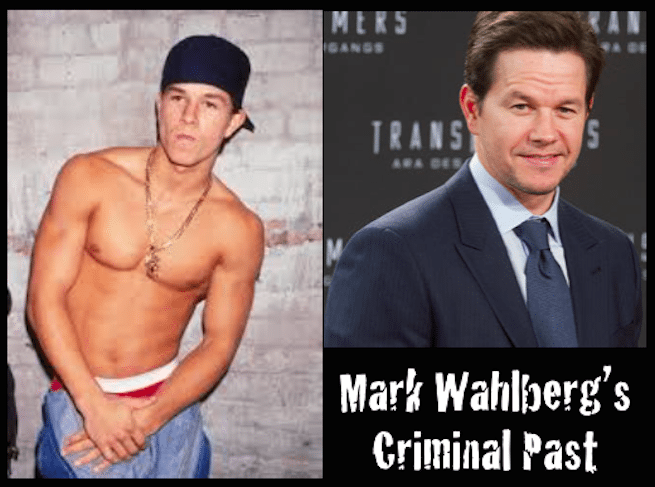
Mark Wahlberg Wants To Erase Racist Past
January 22, 2015
Current Events
In 1986, a young Mark Wahlberg threw rocks at African-American school children who were on a field trip, while calling them the “N” word. In 1988, Wahlberg also beat a Vietnamese man over the head with a pole simply for being of a different ethnic background.
Now, Wahlberg is asking the Governor of Massachusetts to pardon him — to simply wipe the charges away as if they never existed, so that he can legally own businesses (he is currently prohibited in California) and further thrive as a Hollywood multi-millionaire.
“I’ve been looking for redemption (since) the day I woke up and realized that I done some horrific things and was on a path of self-destruction, as well as causing a lot of people harm,” the now 43-year-old Wahlberg said in an interview. “When I decided to go and petition for a pardon, it wasn’t based on the things I accomplished in my career. It’s been the things I’ve been able to do in my personal life: giving back to the community and helping kids, especially inner-city kids and at-risk youth and kids growing up in that same situation.”
Should he be pardoned all these years and all these movies later? At least one of his victims says NO!
Kristyn Atwood was among the group of mostly black 4th grade students on a field trip to the beach in 1986 when Wahlberg and his white friends began hurling rocks and shouting racial epithets as they chased the kids down the street.
“I don’t think he should get a pardon,” Atwood, now 38, said in a recent interview. “I don’t really care who he is. It doesn’t make him any exception. If you’re a racist, you’re always going to be a racist. And for him to want to erase it I just think it’s wrong.”
Atwood is not alone in her opinion.
Former Massachusetts Assistant Attorney General Judith Beals wrote this very gripping OpEd piece for the Boston Globe detailing why Mark Wahlberg should NOT be pardoned. It’s a long but very worthy read:
With each new year, we welcome fresh starts and second chances. But sometimes, wiping the slate clean is not the right thing to do.
Actor Mark Wahlberg has petitioned Massachusetts for a pardon of violent racial assaults he committed as a teenager. I prosecuted Wahlberg for his actions 26 years ago when I was an assistant attorney general. Now, as a private citizen, I see no reason why that history should be erased from the public record through a pardon. While private acts of reconciliation and forgiveness can be an important part of our shared racial history, that history should never be erased.
Wahlberg made his mark in Boston long before he became famous. He first came to the attention of the attorney general’s office in 1986 when Boston was still under court order to desegregate its public school system and racial tension was high.
On a Sunday afternoon, Jesse Coleman, a 12-year-old African-American boy, was walking on Savin Hill Beach when Wahlberg and his buddies began chasing him, hurling rocks and yelling racial epithets. When Jesse returned to the beach the next day on a school field trip, Wahlberg was there again with an even bigger gang, hurling rocks and more racial epithets at Jesse’s class, injuring two of the students.
The harm inflicted by racial harassment extends far beyond individual victims — it sends ripples of fear throughout entire communities. This case was no exception. But Wahlberg was not criminally prosecuted for his actions on Savin Hill Beach. Instead, we secured a civil rights injunction — a court order — that essentially amounted to a stern warning: if you do this again, you will go to prison.
In the 13 years I served in the attorney general’s office, I recall only one instance of a defendant violating a civil rights injunction — Mark Wahlberg. His attack on Thanh Lam and Hoa Trinh showed the same tendency toward serial acts of racial violence. The two men had no connection except for the fact that they were both Vietnamese. Wahlberg’s repeated racial epithets revealed an equally racist motivation albeit toward a different class – making clear that bigotry harbors no boundaries. But this time, Wahlberg was even more violent, breaking a five-foot pole over Thanh Lam’s head and punching Hoa Trinh to the ground. For this, he served 45 days in prison.
I’m glad Mark Wahlberg has turned his life around. I’ve read that Hoa Trinh has forgiven him. But a public pardon is an extraordinary public act, requiring extraordinary circumstances because it essentially eliminates all effects of having ever been convicted. It is reserved to those who demonstrate “extraordinary contributions to society,” requiring “extensive service to others performed, in part, as a means of restoring community and making amends.” On this, I am not sold.
First, Wahlberg has never acknowledged the racial nature of his crimes. Even his pardon petition describes his serial pattern of racist violence as a “single episode” that took place while he was “under the influence of alcohol and narcotics.” For a community that continues to confront racism and hate crime, we need acknowledgment and leadership, not denial.
And while the $9.6 million he has raised over the 14 year lifetime of the Mark Wahlberg Youth Foundation — $2.5 million of which made its way to our community — has undoubtedly done some good, I question whether that truly is “extraordinary” for someone who earned $32 million last year and who has a net worth of at least $200 million.
Lastly and most importantly, Wahlberg’s status as a “role model to troubled youth” would not be helped by a public pardon, as he claims. In fact, a formal public pardon would highlight all too clearly that if you are white and a movie star, a different standard applies. Is that really what Wahlberg wants?
A larger public policy question is also at stake: what types of crime do we collectively forgive and expunge from the record? History tells us, again and again, that when it comes to hate crimes, forgetting is not the right path. Truth and reconciliation are all important in moving forward — but not a public wiping of the record. Not now when hate crime remains so high in Boston; not now when tension remains acute over the unpunished killings of black men at the hands of unaccountable white men. And frankly, not ever. Not in our name. Please.








Re: "If you're a racist, you're always going to be a racist."
Not to dismiss, disregard or minimize in any way either (1) the bad acts committed by Mark Wahlberg during his teenage years OR (2) the thoughts and feelings of Kristyn Atwood (one of his victims).
But I could not DISAGREE more with her comment!
The truth is, ANY person, when being sincere, can_and SOME genuinely DO _change over time.
I'd hate to think that if I had been an ugly character during my teenage years that that would have automatically meant it was a *given* that I was "always going to be" an ugly character the rest of my life, no matter the kind of time and work I put in…as I grew older and wiser….to try to redeeem myself.
It seems that Mark Wahlberg has put in some real time over the years doing good things in the community, in particular for inner-city kids.
In short – It appears, he has changed. And if he is pardoned, I would have no problem with it.
Here's a rare time for us to disagree Truth. He wasn't just a ugly character in his teenage years but he was arrested and put in jail 45 days over several racist and violent actions. Regular people with a prison record don't get to make that go away later in life so he shouldn't either. If he turned his life around that's good but if that's all it took then nobody would have a arrest record. All they would have to do is turn their life around and every governor would pardon them. He shouldn't get special treatment over everybody else just because he's a celebrity.
That's the beauty of being Independent Thinkers BD….we can…and do …sometimes Disagree….
…but always with Respect.
And Yes. I do see your points. DJ's post is quite detailed.
I still disagree with the comment by Ms Atwood "If you're a racist, you're always going to be a racist."
I simply do not believe that to be true …not in every case,
But again….I do see your points.